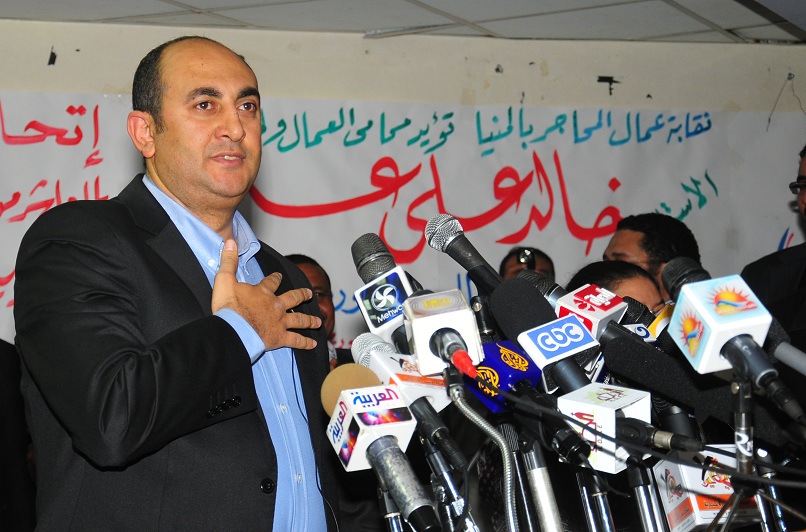CAIRO: The Ministry of Administrative Development criticized a proposal to split the working hours of government employees into morning and evening sessions to help ease Cairo’s heavy traffic, saying it doesn’t take into consideration the personal lives of these employees, especially women.
By creating a morning and an evening slot, the proposal suggested, less people would be trying to get home after work at the same time, which would dramatically decrease traffic jams during rush hours.
“If we change the working hours, we can’t change school hours. Parents are used to picking up their children after work, they won’t be able to do that if they start work at 5 pm,” spokesman for the Ministry of Administrative Development Nasser Fouad told Daily News Egypt.
As an alternative, a government committee including the Ministry of Administrative Development and headed by the Minister of Housing Ahmed El-Maghrabi proposed relocating the ministries off Qasr Al-Aini Street in Downtown Cairo to New Cairo.
The ministries and the citizens who seek their services every day are blamed for the traffic jam crippling the center of the capital.
“The decision isn’t final yet, but in case the decision is implemented, our job will be to help facilitate services to citizens if the ministries are located far from the heart of Cairo,” Fouad said.
The ministry proposed establishing “service kiosks”. In this new streamlined system, citizens will be able to retrieve past documents from the kiosk nearest to them instead of having to make the grueling trip downtown.
The government employee manning these kiosks will be given official authorization and an ID from the ministry to handle these tasks. These kiosks will be located in different areas all over Egypt to serve the largest number of citizens.
The ministry added that all government services will also be available through the internet.
Knowing that around 29.33 percent of Egypt’s population is illiterate, according to the 2008 National report on literacy and adult education, not to mention computer and internet illiteracy, the ministry suggested that every village in Egypt be provided with an internet public service, where a government employee would help citizens use the government services offered online against a fee of no more than LE 3.
“We have around 4,600 villages in Egypt; if we provide every village with three fresh graduates hired by the government to help village residents gain access to the internet and receive the service they need, then that would solve a huge problem,” Fouad said.
“The cost of this service, in addition to the kiosks will range from LE 2 to LE 3 for each citizen, which is more cost and time effective than commuting to the ministry,” he added.
The ministry also started implementing a new system to ease the bureaucracy inside the ministries.
The system entails that no governmental authority will request a document from a citizen as long as it exists in another government authority.
“This has already been implemented with the elementary school admissions for 2009; we didn’t ask them to present a birth certificate during their application. We want to expand this system to other governmental organizations as well,” Fouad said.
“But we don’t want these governmental bodies to be dead or abandoned after the relocation; the idea is to build an integrated city that includes governmental institutions outside central Cairo,” he added.

